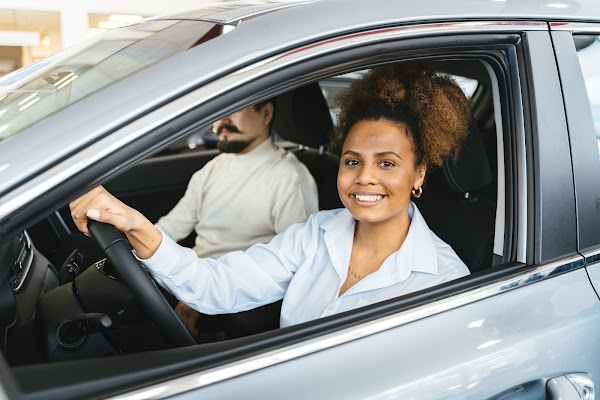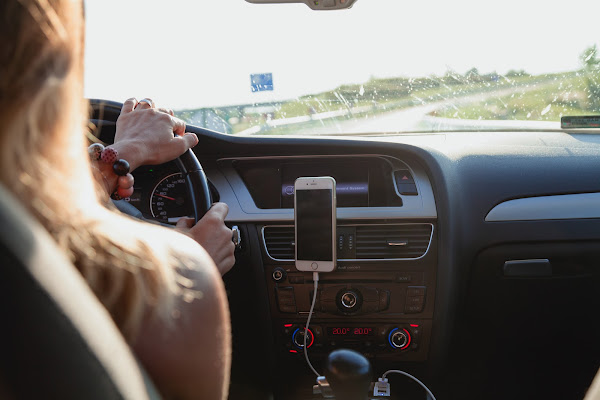Important Things You Need to Do When Getting a New Car
You did it; you finally found the car of your dreams. Now that you've taken the plunge and purchased a new set of wheels, there are several things you will need to do before you can hit the open road. Ensuring that you care for your new car and take the necessary precautions will help to keep you safe and drive more stress-free. From paperwork to financial considerations, here are some of the most important things you need to do when getting a new car.
Get Insured
One of the most important things you need to do when purchasing a new car is to get insured. Insurance protects you financially should anything happen while on the road, such as an accident or theft. Before buying your car, make sure you research different types of auto insurance policies so that you can find one that best fits your needs. Also, be sure to check with your insurance provider for any discounts or rate reductions that may apply. For example, many insurers will give you a discount if you can prove that you have a safe driving record.
Learn more about SR22 insurance and how it plays a crucial role in meeting legal requirements for high-risk drivers. SR22 insurance is specifically designed to provide proof of financial responsibility for individuals who may have had serious driving violations. Understanding the details and benefits of SR22 insurance is essential for those seeking to reinstate their driving privileges.
Transfer Your Registration
Once you have finalized all of the paperwork related to purchasing your vehicle, it's time to transfer your registration from the previous owner's name into yours. This will involve filling out some forms and paying associated fees depending on where you live and what type of vehicle it is. You will also need to provide proof of insurance and the title to the car. Ensuring the registration is properly transferred will help to protect you against any potential legal complications. If you have private number plates that you intend to keep, you'll also need to make sure that the details of these are also moved over to your new car.
Invest In Maintenance
Before hitting the gas pedal and taking off down the highway, it's wise to invest in proper vehicle maintenance immediately. This includes things such as oil changes, tire rotations, and other basic tune-ups so that it runs at its optimal level throughout its lifespan. Doing regular maintenance on a well-maintained vehicle will not only extend its life but also ensure that it stays running smoothly and safely on the road for years to come and save you money in long-term repairs down the line! You should also ensure that you keep records of all maintenance done on your car, as this will come in handy if you plan on selling it later down the road.
Buy Accessories
A great way to personalize and customize your ride is by investing in accessories like mats for inside protection from dirt and mud, seat covers for extra comfort and ensuring the seats remain in excellent condition, cargo racks for hauling heavy items, or even taking a trip to somewhere like this auto tinting shop in Gretna, LA and exploring window tinting for privacy purposes! These add-ons can make driving more enjoyable while also adding value if/when you decide to sell your car. You could also consider things like custom car fresheners, steering wheel covers, and personalized license plate frames to add a more personal touch. Making your new car look, smell, and feel like your own will make the overall driving experience even more enjoyable.
Get Roadside Assistance
If something goes wrong on the road, having a roadside assistance plan in place will save you from hassle and expense. From flat tires to running out of gas or needing a jump start, these types of plans can provide peace of mind knowing that help is just a phone call away. Policies vary depending on the provider, so be sure to compare different ones before purchasing. This isn't vital for all new car owners; however, it's worth considering if you spend a lot of time on the road. There's nothing worse than being stranded on the side of the highway with no help in sight!
Establish A Budget
When buying a car, it's important to set up a budget and stick to it. Determine how much you can afford to spend each month on your new vehicle, including insurance, gas, maintenance, or repairs that may be needed. This will help you avoid overspending and put more money in your pocket. In addition, you need to consider potential hidden costs, such as registration and taxes, that may not be included in the sticker price. These additional costs can quickly add up, and if you aren't prepared for them, they can put you in a difficult financial situation. Online cost calculators can help you determine a realistic budget and ensure you're considering all costs before driving away in a car you actually can't afford.
Carry An Emergency Kit
No matter how well-maintained a vehicle is, things can still go wrong while on the road. To ensure you are prepared for anything, carry an emergency kit in your car. This should include items such as a flashlight, extra batteries, water, non-perishable snacks, flares, jumper cables, a basic toolkit, an ice scraper, and windshield wiper fluid. If you live in an area prone to extreme weather conditions such as snow or heavy rains, you may also want to include a blanket and other items that can help keep you safe in an emergency. Many people think this is unnecessary, but accidents happen quickly, and being prepared can save lives.
Be Mindful of Driving Habits
Good driving habits such as avoiding harsh braking and accelerating, using cruise control when possible, and monitoring your speed are all important for keeping your car in good condition. By driving responsibly, you can get the most out of your vehicle's fuel economy without compromising its performance. However, your driving habits can also be dangerous for others on the road, so if you feel that you are not practicing safe driving practices, consider taking a defensive driving course to brush up on your skills. This is one of the best ways for drivers of all ages to ensure that they're driving safely and responsibly.
When you're getting a new car, there are lots of things to keep in mind. From budgeting to road safety and emergency kits, taking the time to plan ahead will ensure that your experience is as safe and enjoyable as possible. So, take some time to weigh the advantages and disadvantages of different types of cars, prepare an emergency kit for those unexpected moments, and get yourself road-ready with roadside assistance. With these steps in place, you'll be ready to hit the road with confidence!








No comments
Thank you for dropping by! I would love to hear what you thought. :)
Thanks!
♥,
Diana